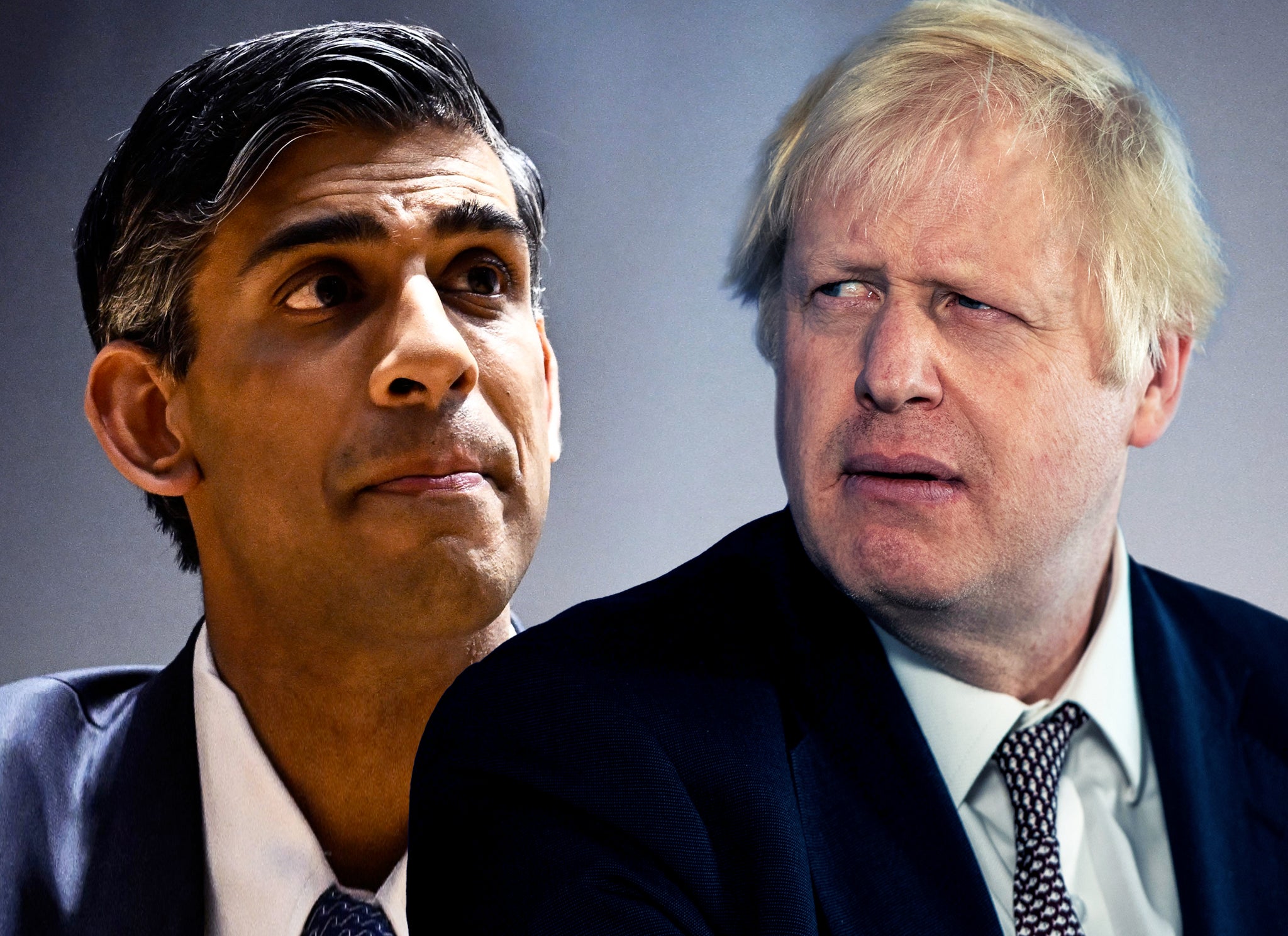By seeking a judicial review, Rishi Sunak looks as if he has something to hide
The prime minister has constructed an elegant political trap for himself, thereby making the very worst of a delicate situation

We are in uncharted territory indeed when Boris Johnson is held up as an example of, to borrow Rishi Sunak’s phrase, “integrity, professionalism and accountability” in public life.
Mr Johnson, perhaps concluding that further resistance is futile in the face of the Covid inquiry’s indomitable chair Baroness Hallett, has handed over his WhatsApp messages, diaries and other materials to the Cabinet Office, which, sadly, is itself unwilling to send them in uncensored form to the inquiry.
Further, Mr Johnson has said that if the government, via the Cabinet Office, does indeed try to redact his submissions, then he will just give the material directly to the inquiry.
It seems foolish, therefore, for Mr Sunak to attempt to defy the inquiry’s legitimate requests for maximum disclosure of information to its officials. The decision to seek a judicial review makes it look as though the prime minister is engaged in some sort of cover-up, even if he is not, and suggests that he is failing to live up to his own ideals.
What is more, it rather looks as though Mr Sunak doesn’t trust the process. In view of his attempt to restrict the release of information, this is somewhat ironic. Never before has a government gone to court in an effort to stymie an independent inquiry that it set up itself.
The chances are that Mr Sunak will lose. Either way, people will ask, fairly or not, what he has got to hide. The legal, moral, and indeed political arguments for full disclosure of the evidence the inquiry has requested have always been overwhelming. It was, and is, simply the right thing to do.
Moreover, the government should never have tried to bamboozle a senior judge with waffle about precedent and breaching the principle of collective responsibility.
Even at such a relatively short distance from the height of the Covid pandemic, it is worth recalling that this was, so to speak, no ordinary disaster or scandal. It was the first global pandemic in a century, but it will likely not be the last.
Millions of people suffered from the disease, many of whom still struggle with its life-changing after-effects. Some 200,000 died. The backlog of NHS cases, a result of the necessary lockdowns, has yielded more excess deaths. Mental health, children’s education, and business all suffered as a result of the outbreak and subsequent lockdowns.
The British people are entitled to know whether those who were making decisions and rules on their behalf were indeed “following the science” and working in a rational and objective environment. Mistakes, including those that created the conditions for fraud, were certainly made, not least in preparation, the procurement of personal protective equipment, and the failed attempt to perfect a test-and-trace system. There is much to discuss.
To form a holistic view of the workings of the British state during that emergency, Lady Hallett and her team have to be given full “visibility”. If a minister was distracted by an extramarital affair, say, or the prime minister was simultaneously trying to deal with Brexit or a crisis in Iraq and a Cobra session on the emergence of a new subvariant, then the inquiry team have to know everything about those pressures, even if some of the details would normally be deemed private or “irrelevant”.
In such an emergency, as in a state of total war, the private becomes public, and nothing should be off limits for the inquiry. The lessons to be learnt are not just matters of life and death when it comes to the next pandemic, but will serve as a form of justice – for the bereaved, the NHS and care staff who bore the brunt, and the wider public, who had their lives turned upside down.
Lady Hallett will, presumably, have to make the relevant evidence public in due course, as substantiation for her findings and as justification for her recommendations. She has no interest, we may be sure, in the publication of information that is irrelevant. We may also be sure that she will not consider embarrassment, either political or personal, a valid reason to suppress evidence that ought to be in the public domain. During the public hearings, everyone from Johnson and Chris Whitty to individual victims of Covid and A&E doctors will be cross-examined by counsel. This is as it should be.
Mr Sunak has constructed an elegant political trap for himself, thereby making the very worst of a delicate situation. There has been too much obfuscation and delay. He should let Lady Hallett get on with her job.






Join our commenting forum
Join thought-provoking conversations, follow other Independent readers and see their replies
Comments